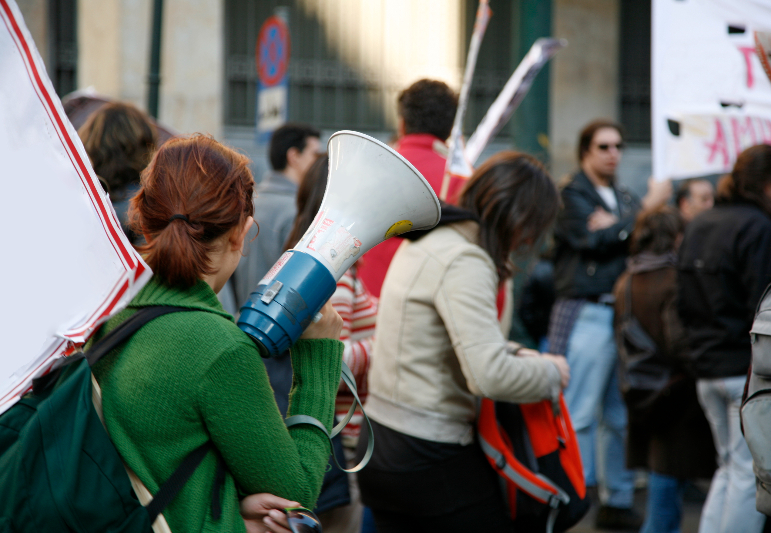Extract from Eureka Street
- John Falzon
- 20 January 2022
‘All that is solid melts into air.’ These words from The Communist Manifesto, first published in London in 1848, were written as a poetic depiction of the destructive and creative dynamism of capitalism. Reading them today makes you feel as if they were written with the last couple of years in mind. Much looked as if it were solid, but melted into air.
 Social
security payments, for example, were once actually seen as a means of
preventing poverty, not prescribing it. A job was once seen, at least
for some, as being not only the best guarantee against poverty but the
path to economic security. Now it seems, however, multiple jobs are
required to stave off poverty.
Social
security payments, for example, were once actually seen as a means of
preventing poverty, not prescribing it. A job was once seen, at least
for some, as being not only the best guarantee against poverty but the
path to economic security. Now it seems, however, multiple jobs are
required to stave off poverty.
According to a recent ACTU report, there are now ‘867,900 Australians working multiple jobs, the highest number since the ABS began tracking secondary jobs in 1994.’ And there are now a record number of Australians working three or more jobs, 209,100, a 10.8 per cent increase from June 2020.
We’re living in a society where, according to the report, workers who do multiple jobs still earn 17.5 per cent less than the national average. And women working multiple jobs are significantly worse off than men, earning almost $10,000 less per year than their male counterparts. Of those holding multiple jobs, 53.7 per cent are women and 55 per cent are under 35.
This surge in people working multiple jobs is being driven by employers offering insecure work. Where employers, encouraged by neoliberal governments, assiduously press for ever greater levels of insecurity and precarity as a means of increasing short-term profits by lowering wages, as well as aggressively fragmenting the working class, they do so for one reason only: because they can.
The very word precarity, Eloisa Betti reminds us, comes from the Latin root precor (pray) or precarius (obtained by praying). When our jobs, or anything else for that matter, are insecure, we are expected to feel like those who hold the power over us are best approached with an attitude akin to prayer.
"At its best, politics is the collective means of achieving our shared hopes."
And this precarity is not an accident of history. It is designed to place people in a position of assumed powerlessness. It functions most effectively for its instigators when people are isolated from each other, atomised, fragmented, convinced that their malady is theirs alone. It is important that we tell ourselves the story of what is happening.
But if ‘storytelling,’ as Ursula Le Guin argues, ‘is a tool for knowing who we are and what we want,’ we have a long way to go before we can claim we have collectively crafted a shared story, one that truthfully and respectfully acknowledges the deliberate disempowerment of First Nations Peoples, women, workers, and all who are systematically relegated and residualised. Our story must also acknowledge, and help provoke, our resistance to this disempowerment, our stubborn commitment to solidarity and love.
In the midst of the fragmentation of the last two years, we have come together in extraordinary ways. We have developed a heightened sense of the centrality of the social, the primacy of the public sphere. Whether it’s our public health system, our startling (albeit unconscionably temporary) ability to prevent poverty by increasing unemployment payments and initiating job subsidies, our remarkable speed at finding accommodation (temporary again, for the most part) for people sleeping rough, or our spontaneous outbursts of personal and communal kindness, we have learned, as per the insight of political theorist, Jodi Dean, that solidarity is our ‘response to fragmentation.’
As we brace ourselves for the 2022 election, I want to call to mind three stories that have resonated deeply with many of us and have left a mark on the political arena. First, there has been the story that has been so beautifully crystallised in the Uluru Statement from the Heart, a story of liberation told by ‘the most incarcerated people on the planet.’ Secondly, there is the story of patriarchal violence, told by women, a story not of acceptance of the way things are but of collective resistance against the way things are. Third, there is the story of working people, organised around the principle of dignity, fighting for secure jobs. The fight to save the planet is integral to each of these, and other, stories of love and liberation.
Our social brokenness can turn us in on ourselves and against each other, but solidarity, even when it is tentative, even when we do not recognise it as such, is the most powerful antidote to fragmentation. As Nicaraguan poet, Gioconda Belli, put it, echoing the revolutionary slogan of those who had nothing but hope in their pockets, ‘Solidarity is the tenderness of the People.’
Our job is to turn this fragmentation into a resonant narrative. More than developing policies that speak to our sense of being overwhelmed, it is about capturing that painful sense of dislodgement and transforming it into a nugget of credible hope. We are usually more afraid of losing what we have than failing to gain what is not yet real for us. Politics, at its worst, is a vehicle for lies that play on these fears and offer us a false protection against them. At its best, however, politics is the collective means of achieving our shared hopes.
 Dr John Falzon is Senior Fellow, Inequality and Social Justice at
Dr John Falzon is Senior Fellow, Inequality and Social Justice at
No comments:
Post a Comment